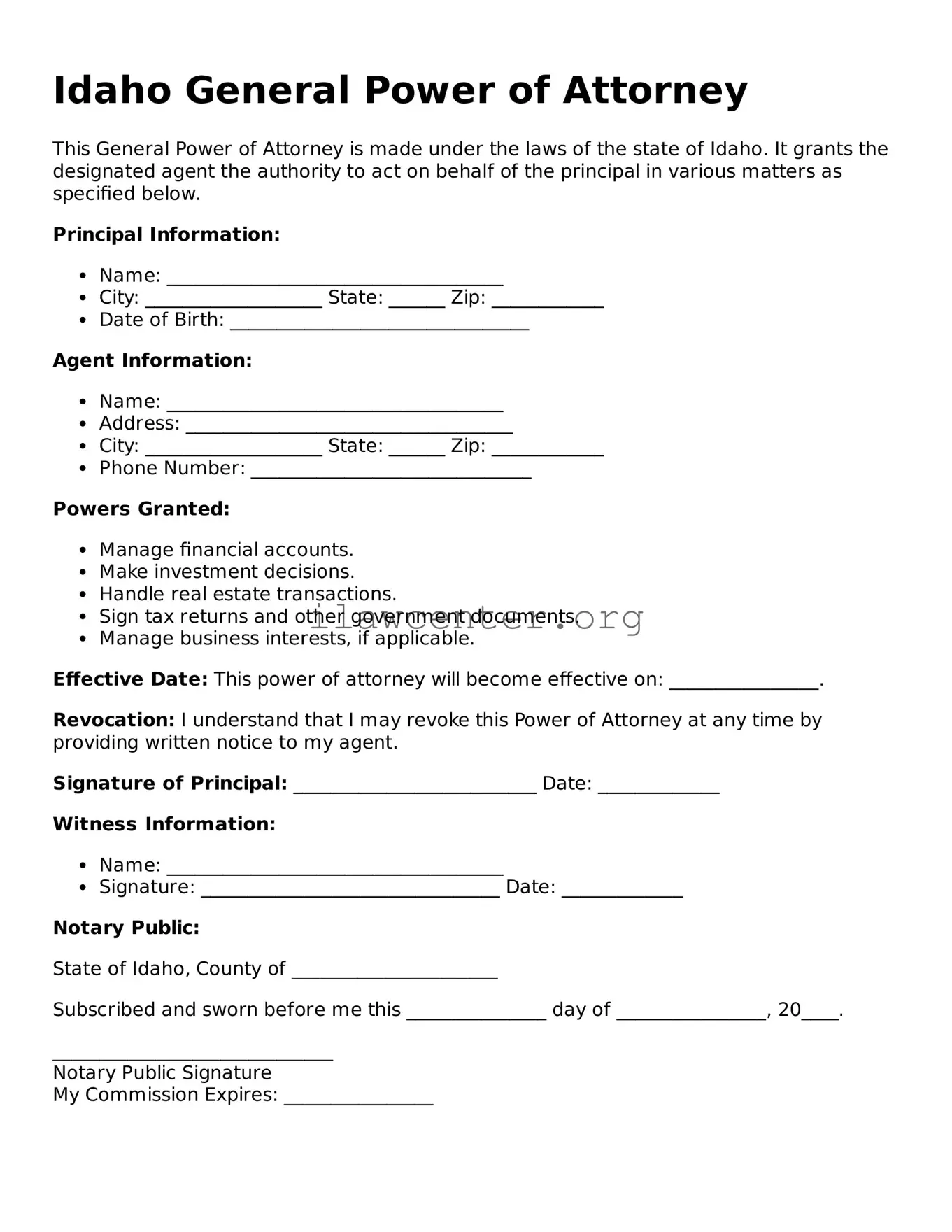Instructions on Utilizing Idaho General Power of Attorney
To complete the Idaho General Power of Attorney form, gather the necessary information and follow these steps. Ensure all details are accurate to avoid delays or issues later.
- Obtain the form: Download the Idaho General Power of Attorney form from a reliable source or obtain a physical copy from a legal office.
- Fill in your information: Enter your full name, address, and date of birth in the "Principal" section. This is the person granting power.
- Designate an agent: Provide the name, address, and contact information of the person you are appointing as your agent. This is the individual who will act on your behalf.
- Specify powers: Clearly outline the powers you are granting to your agent. List any specific powers or leave it broad based on your needs.
- Set conditions: If you want to impose any limitations or conditions on the powers, include these details in the provided section.
- Sign the form: As the principal, sign and date the form. Make sure to do this in the presence of a notary public.
- Notarization: Have the notary public confirm your identity and witness your signing of the document. Ensure they complete their part on the form.
- Distribute copies: After filling out and notarizing the form, make several copies. Distribute these to your agent and any institutions where they might need to present it.
